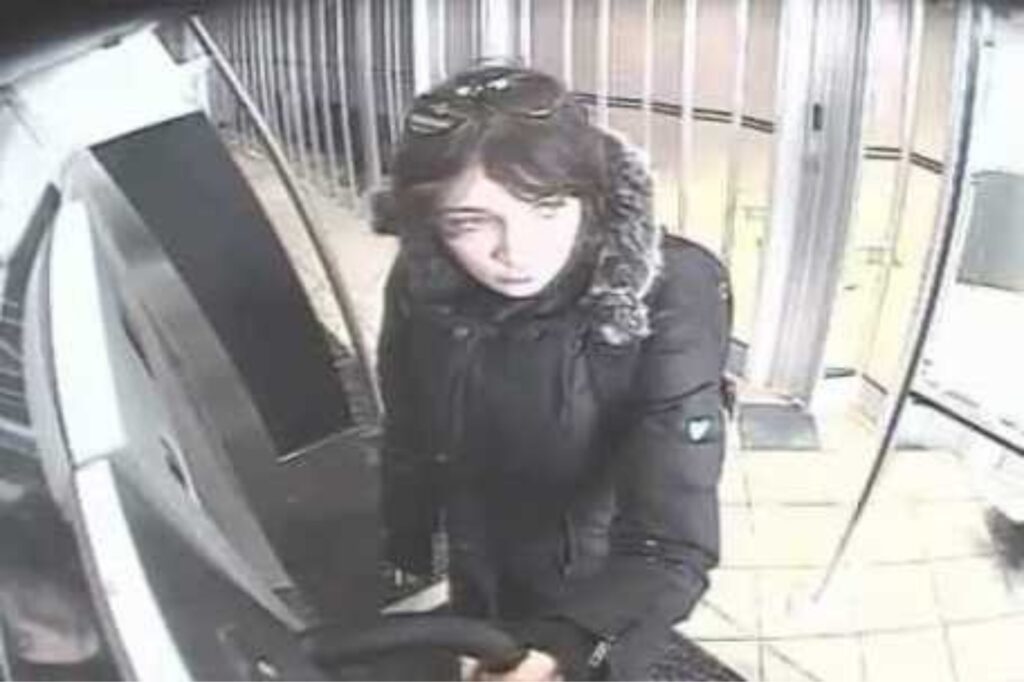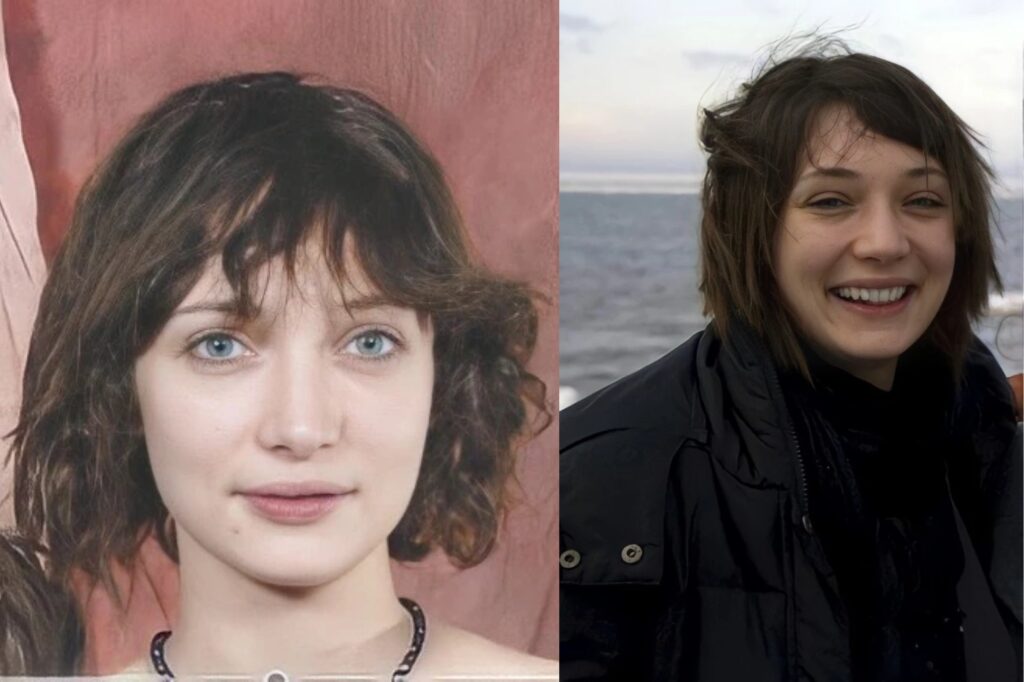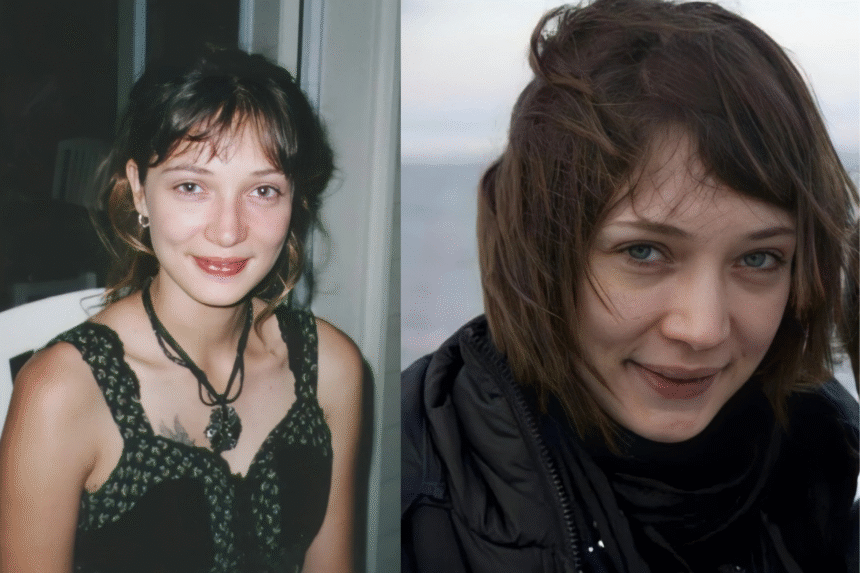On a cold winter morning in February 2008, Marilyn Bergeron left her parents’ home in Quebec City for a walk. She never came back. Sixteen years later, her family still doesn’t know where she went—or why she vanished in the first place.
A Young Woman on the Edge
Marilyn was born on December 21, 1983. Friends described her as soft-spoken and creative, someone with a sensitive soul. She was raised in Quebec City but later headed to Montreal to study and pursue work in the arts and music scene.
But something changed in the final months before her disappearance. In early 2008, she suddenly returned to Quebec City and moved back in with her parents. According to her mother, she had become withdrawn and often cried for no apparent reason.
“She was carrying something heavy… she would often burst into tears but never said what had happened,” her mother later told reporters.
Her behavior disturbed everyone around her. The energy she once had was gone, replaced by fear, anxiety, and silence. She wouldn’t explain what was haunting her.
February 17, 2008: The Day Everything Changed

According to Global News, Marilyn told her parents she was stepping out for a short walk. She wore grey velour pants, a long black coat with a fur-lined hood, and black suede boots. She also took a black backpack. That was around 11 a.m.
Later that morning, CCTV footage captured her at a Desjardins ATM in Loretteville, a neighborhood in Quebec City. She tried to withdraw $60 but the transaction failed.
By 4:03 p.m., security cameras at a Café Dépôt in Saint-Romuald—over 20 kilometers from her parents’ house—recorded her paying for a coffee with her credit card. Her face was tense, her shoulders hunched. Witnesses said she looked like she was trying not to cry.
That purchase was the last confirmed trace of Marilyn Bergeron.
“No, It’s Worse… You Just Can’t Imagine”
In the weeks leading up to her disappearance, Marilyn had confided in Jonathan Gauthier, a close friend in Montreal. He said she seemed terrified and hinted that something terrible had happened.
“She cried and she told me something had happened. She couldn’t tell me, she wouldn’t tell me,” Gauthier said. “I asked her whether she had been raped or something like that and all of her answers were, ‘No, it’s worse, it’s worse.’ She said, ‘You just can’t imagine what happened.’”
That cryptic statement became the core of a mystery that has never been solved.
Marilyn refused to name anyone or provide details. But whatever she was carrying seemed to weigh her down emotionally and physically. Her family believes she returned to Quebec because she no longer felt safe in Montreal.
A Knock on the Door in Ontario
Nearly two years after her disappearance, in December 2009, a man named Guy Salicco said a woman matching Marilyn’s description showed up at his house in Hawkesbury, Ontario—about a six-hour drive from Quebec City.
“When she came to our house, she was cold, she was frail, wet, because it was raining outside,” Salicco said. “She didn’t seem drunk or under the influence of drugs.”
She asked to use a phone. Salicco gave her one, and she made a call, but whoever she tried to reach didn’t answer. She refused his offer to drive her anywhere. After 15 minutes of quiet conversation, she walked away into the night.
At the time, he didn’t know who she was. Later, he recognized her face on the news and believed she had been Marilyn Bergeron, the CBC reports.
The police treated the tip as credible. If the woman was Marilyn, it meant she had survived at least a year and a half after she disappeared.
A Frustrating Investigation

The Quebec City Police (SPVQ) were the main agency handling the case. From early on, they floated the idea that Marilyn may have died by suicide. Her mental state, they believed, pointed in that direction.
But her family was never convinced.
“There are about 20 credible tips placing Marilyn in Hawkesbury in 2009,” said Marc Bellemare, a former provincial justice minister and the family’s legal representative. “It is huge that she was likely alive then.”
Despite this, the SPVQ refused requests to hand the investigation over to Montreal police or the provincial force, Sûreté du Québec (SQ), both of which had more experience handling complex or cross-border cases.
To the family, this was a crucial mistake. They believed local police didn’t have the resources or expertise to properly follow up on long-distance leads.
What Could Have Happened?
Over the years, more than 40 people have reported seeing Marilyn, mostly in Ontario. One woman said she saw her in a shelter. Another said she believed Marilyn was working under a different name.
But none of the sightings have been officially confirmed.
Her family hasn’t given up. In 2017, they held a press conference asking the government to assign the case to a new investigative team. They also offered a cash reward for tips.
At that event, Marilyn’s mother made a heartbreaking statement.
“If she has a new life and wants to be left alone, we will respect that,” she said. “But if we lost her, we need to put an end to this nightmare,” per Wikipedia.
Theories about Marilyn’s fate are all over the map. Some believe she was the victim of foul play. Others suspect she may have experienced a mental health crisis. And some think she may have chosen to disappear and start over under a new identity.
But almost all roads circle back to one question: What happened in Montreal that scared her so deeply she couldn’t talk about it?
Her final words to Gauthier still haunt everyone who hears them. “It’s worse… You just can’t imagine.”
A Story Without an Ending
Today, Marilyn Bergeron would be in her early 40s. Her face has aged in police-generated age progression images, but the sadness and urgency in her story remain fresh.
Police say the investigation is still active. But to her family, every passing year without answers feels like another wound.
“She was our daughter. She was loved. And she didn’t just disappear,” her mother told reporters during one of their many public appeals.
They continue to hope someone, somewhere, knows something—and will come forward.
Because no matter how much time passes, they believe one thing: Marilyn didn’t just vanish. Something happened and someone knows what it was.




